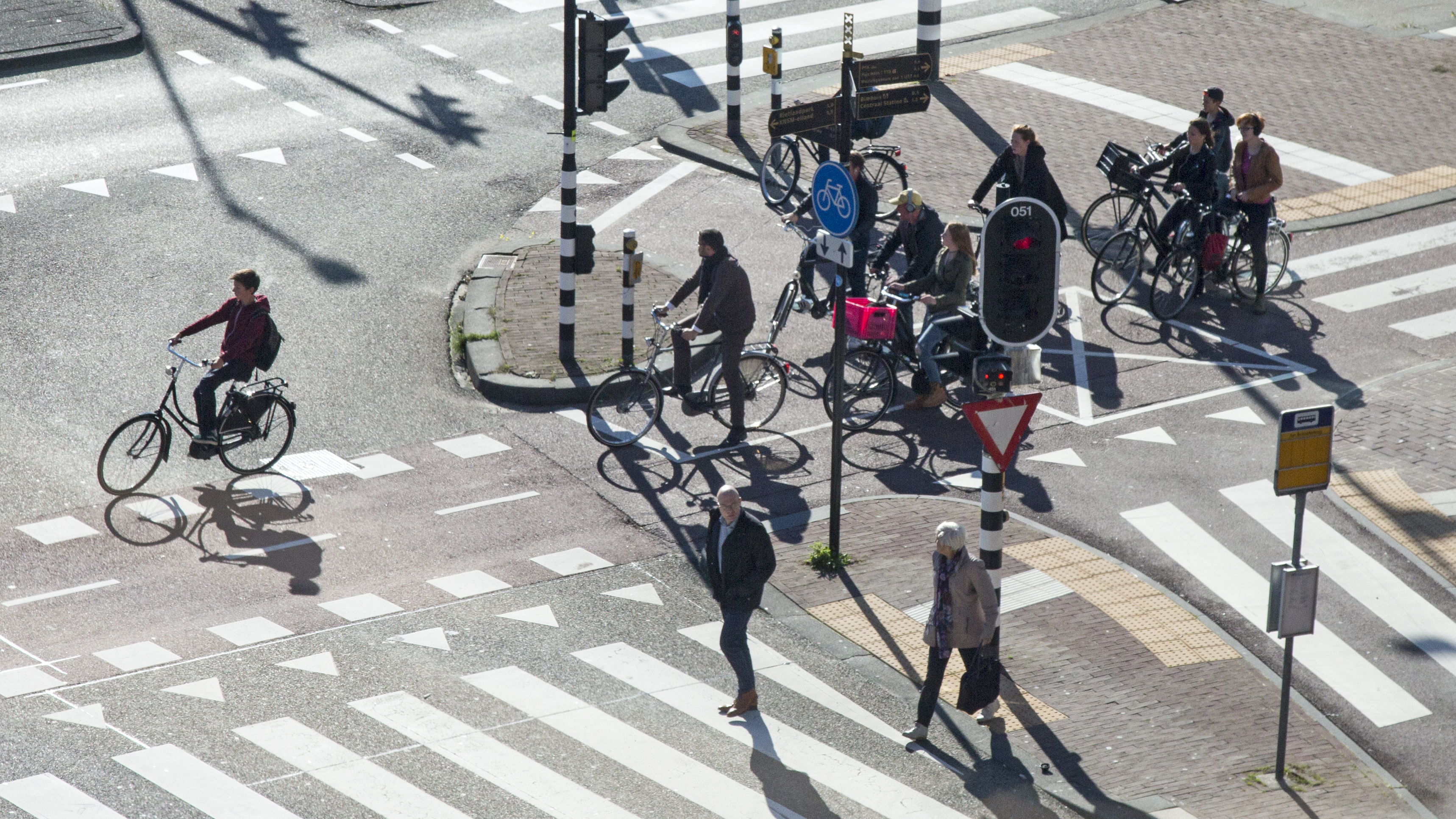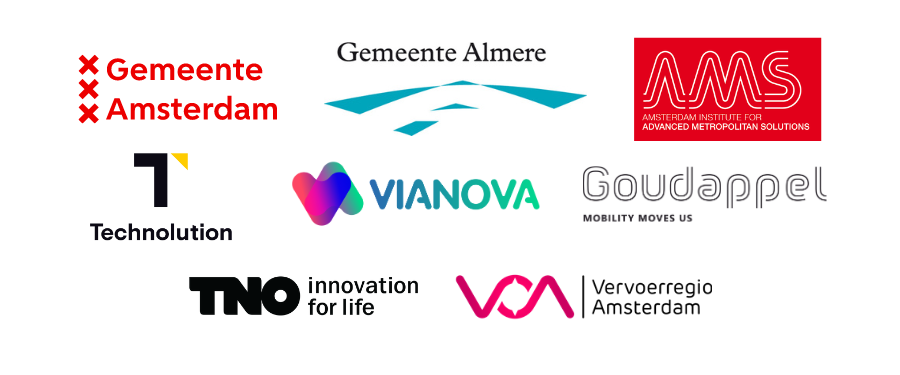Vianova joins Dutch innovation consortium for better management of the use of public space

- The Dutch Metropolitan Innovations (DMI) is an ecosystem focused on improving mobility, public space, and housing with new digital tools
- DRO Consortium within DMI is bringing together cities, tech organizations, and research institutes to test and implement data-driven solutions
- Collaborative mobility data platform Vianova will work with partners including the City of Amsterdam to provide mobility data to help build smart, sustainable cities
- The aim is to create collaborative solutions that will future-proof local governments
Paris, Amsterdam, 31 January 2024: Vianova – Europe’s leading collaborative mobility data platform – has joined a new consortium in the Netherlands to help build smart, sustainable cities for the future.
Dutch cities strive for cleaner, safer, and more inclusive mobility systems but face increasing pressure on urban space. Therefore, the Cities of Amsterdam and Almere, and Groningen Bereikbaar join forces with private sector partners to form the consortium ‘DRO’: Digital orchestration of the use of public space. The consortium is part of the Dutch Metropolitan Innovations (DMI)-ecosystem and received the innovation contract from the Dutch Ministry of Infrastructure and Water Management at the end of 2023. Today, all partners are officially signing to join. With a budget of over 23 million euros, DRO-DMI will work on the development of digital tools to better manage the use of public space.
Vianova is the only non-Dutch organization joining the consortium and will contribute mobility data to improve road safety and reduce carbon emissions in cities.
Cities and regions of the future
In the Netherlands, cities and regions face complex challenges in the fields of mobility and urban planning. However, traditional instruments, such as physical interventions in public spaces, traffic lights, and traffic controllers, no longer seem sufficient in the dynamic mobility landscape of today and tomorrow. Amsterdam, where the population is projected to exceed one million by 2030, is exploring ways to reduce pressure on public space, enhance safety, and simultaneously promote the use of environmentally friendly and accessible transportation. Almere grapples with above-average housing ambitions alongside growing mobility needs and increasing mobility poverty. Groningen, a crucial traffic hub in the northern part of the Netherlands, encounters daily traffic jams on access routes from Drenthe, Friesland, and Germany. Therefore, additional digital tools are needed to keep cities accessible and livable.
Scalable, data-driven solutions
DRO-DMI explores, develops, and tests digital, data-based solutions to better manage the use of public space. By regulating access based on user characteristics or modalities, we can already ensure that certain vehicles don’t enter specific areas. Additional cases include managing unused parking capacity and allocating this space for specific uses or users. Other examples focus on spreading and avoiding daily traffic congestion by improving communication with people before or during their journey. This enables users of public space to make informed choices about their trip and helps them contribute to more efficient traffic. This is how DRO-DMI aims to make conscious decisions about the use of limited space. Digital tools can play an important role in ensuring that cities and regions remain accessible and livable for everyone.

Launch of DRO-DMI Consortium
The DMI-ecosystem is a collaboration of industry, knowledge institutes, G40 and G4 municipalities, provinces and the ministries of I&W and BZK under a joint uniform Agreements System. DMI is a collaboration with the National Growth Fund and focuses on smart, sustainable urbanization, and mobility innovation. It provides the domains of mobility, public space and housing with new tools from the digital world. Within the DMI ecosystem, the DRO-DMI consortium brings together various cities, technology organizations, and research institutes. Partners include the City of Amsterdam, City of Almere, Groningen Bereikbaar, Goudappel, Technolution, and AMS Institute, with advice from TNO and the Transport Region Amsterdam.
Vianova was selected as part of the consortium thanks to its cloud-based mobility platform, which leverages IoT and data from 1 million+ connected vehicles daily to provide stakeholders with advanced geo-intelligence about how vehicles move around cities. In the Netherlands, Vianova is already working with Utrecht and Eindhoven to support the cities in rolling out sustainable mobility. Mobility providers share their data with cities through Vianova, whilst policymakers and urban planners use the data to gain valuable insights and analytics to improve decision-making.
Thibault Castagne, CEO and co-founder of Vianova, said:
“We know cities have the desire to be smarter and more sustainable, but frequently lack the tools to enact their ambitions. By bringing together the public and private sectors to co-create solutions, we can achieve faster and more impactful results. We’re delighted to work together with the DRO consortium to build the next generation of digital resources for the Netherlands and beyond.”
With the official award of the innovation contract and the involvement of several partners, the DMI ecosystem and the DRO consortium are ready to break new ground for sustainable cities. This joint effort, backed by financial commitment and broad collaboration, marks the beginning of a promising journey toward smarter, more sustainable urban development in the Netherlands and beyond.

Notes for editors
About the Dutch Metropolitan Innovations (DMI) ecosystem
For more information, please visit the website: DMI-ecosystem
About Vianova
Vianova is the data analytics solution to operate the mobility world. Our platform harnesses the power of connected vehicles and IoT data, to provide actionable insights to plan for safer, greener, and more efficient transportation infrastructures. From enabling regulation of shared mobility to transforming last-mile deliveries, and mapping road risk hotspots, Vianova serves 150+ cities, fleet operators, and enterprises across the globe to change the way people and goods move.
For more information: www.vianova.io